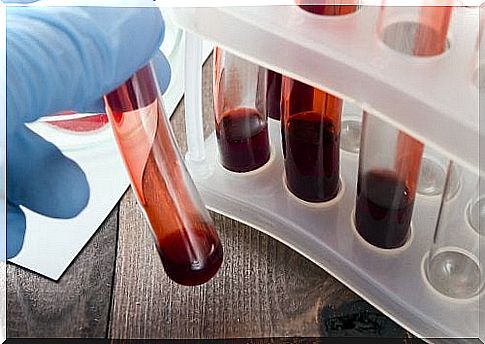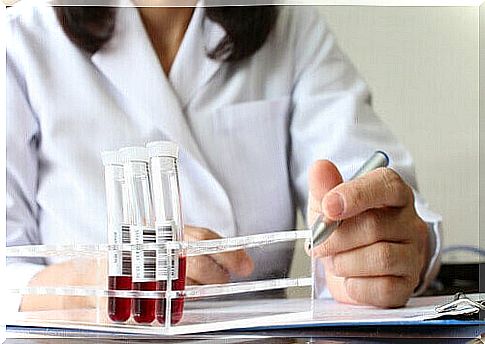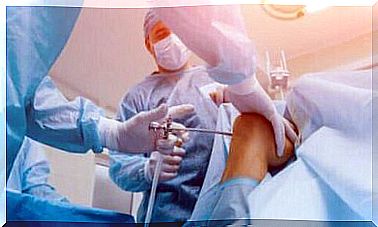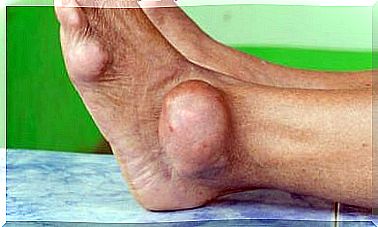5 Good Reasons To Know Your Blood Type
Beyond being useful during a transfusion, knowing your blood type gives a series of clues on possible ailments that can affect us.

We all know that blood type is a necessary piece of information when a transfusion is vital. But there are other important reasons why we should know the blood type of our family members.
While medical science does not yet know why there are different types of blood, we do know enough about how they work and what they are made up of.
There are four blood groups classified according to the presence or absence of proteins on the surface of red blood cells.
- A: this group contains protein A.
- B: the characteristic of this group is to have the protein B.
- AB: this group stands out because it has both proteins.
- O: this group does not unite either of the two proteins.
On the other hand, there is the RH factor: if the RH protein is present in the blood, the RH factor is classified as rh positive. The absence of this protein gives rise to rhesus negative.
Our blood type is made up of the blood group and the RH factor. For example, a person with an A blood type and in the presence of RH will have an rh positive (A +) blood type A.
Patients of all blood types can get O-Rh negative (O-) type, O-Rh negative patient can only get their own type of blood.
Here are five more reasons why knowing your blood type is essential.
1. Knowing your blood type allows you to detect predisposition to deep vein thrombosis

There is a clear genetic predisposition for blood types A, B, and AB to suffer from deep vein thrombosis (DVT) or blood clots in the legs that start out as varicose veins. These clots, if not properly treated, can reach the lungs and be life threatening.
After analyzing data from 66,000 people over the age of 30, this study showed that people with blood group A, B and AB are 40% more likely to suffer from deep vein thrombosis compared to people with blood group O.
2. Know if anyone in your family has heart problems
People with AB blood type are 23% more likely to have heart disease compared to people with type O blood type.
- People with blood group B have an 11% risk, while those with blood group A have a 5% risk.
- A greater predisposition to cholesterol has also been found in people with blood group A.
- People with blood group O have the lowest risk of having a heart attack.
Fortunately, we can control these genetic predispositions through healthy eating. A healthy lifestyle minimizes the risks.
3. Tendency to present certain types of cancer

According to a 2015 study, the risk of stomach cancer is higher in people with type A blood, unlike people with blood type O.
In contrast, people with blood group O are more prone to stomach ulcers.
Also, having a B or AB blood group increases the risk of developing pancreatic cancer.
4. Detect problems related to reproduction
Women with type O blood are twice as likely to have low ovarian reserves due to the high levels of the hormone FSH. This can lead to infertility.
In pregnant women, incompatibility with fetal blood can occur if they do not have the same RH. This can cause a woman’s body to react as if she is allergic to the fetus, which can damage the fetus. The solution is an injectable medicine.
5. Plan your family’s diet
There are no conclusive results on the possibility of improving one’s health by following a specific diet according to the blood type. However, people who have tried this diet report favorable results in terms of weight loss and energy levels.
- Type O. You can eat meat, fish, fruits and vegetables. It is recommended to limit the consumption of cereals, legumes and vegetables.
- Type A. Choose vegetables, tofu, fish, seafood, grains, beans and fruit. It is advisable to limit the consumption of meat, dairy products, lemon and wheat.
- Type B. All meats are recommended, except chicken. Also eat dairy products, beans, grains and vegetables.
- Type AB. You can eat fish and seafood, dairy products, beans, fruits and vegetables in moderation. Avoid red meats.
Thanks to the changes that occur in the DNA of cancer cells that pass through our bloodstream, a simple test could allow us to detect tissue affected by tumors in the years to come.









